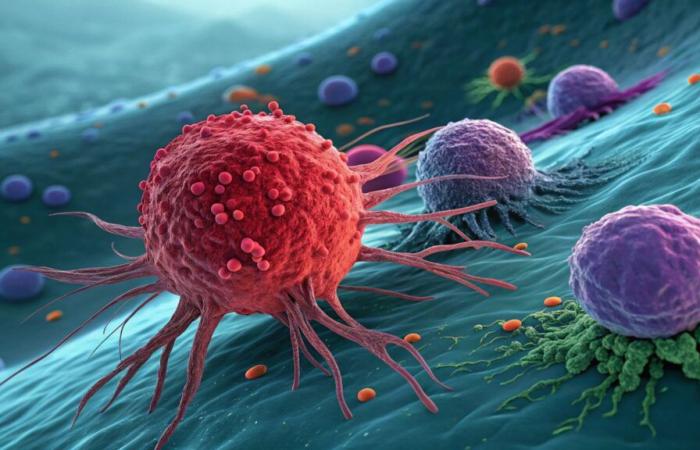A recent study reveals how a diet high in fat and sugar can damage DNA, increasing the risk of liver cancer in patients with fatty liver disease. These discoveries could pave the way for new therapeutic strategies.
Researchers at the University of California, San Diego explored the mechanisms underlying the progression of fatty liver disease to cancer. Their work, published in Natureto measure light the crucial role of DNA damage in this process. This research also highlights the significant impact of diet on health cell and cancer risk.
Over the past two decades, the incidence of hepatocellular carcinoma (HCC), the most common form of liver cancer, has increased by 25 to 30%. This increase is partly attributed to the increasing prevalence of fatty liver disease, affecting a quarter of American adults. Around 20% of these patients develop a more severe form, metabolic steatohepatitis (SHM), which significantly increases the risk of HCC.
Scientists used mouse models and human tissue samples to demonstrate that diets high in fat and sugar cause DNA damage in liver cells. These cells then enter senescence, a state where they can no longer divide but remain metabolically active. This senescence is normally a protective response, but in the case of the liver, it can paradoxically promote the development of cancer.
The results suggest that damaged liver cells sometimes survive senescence and can become proliferative again, increasing the risk of cancer. This discovery opens prospects for the development of new treatments aimed at preventing or repairing DNA damage, offering hope for patients with SHM.
In addition to these therapeutic implications, the study sheds new light on the relationship between aging and cancer. It reveals how similar molecular mechanisms might be at work in various types of cancers, highlighting the importance of research into cellular senescence.
Finally, this research highlights the deleterious effects of a poor diet on cellular metabolism. It could thus help to reinforce public health messages concerning the risks associated with fatty liver andobesityshowing that food choices have a profound impact on our long-term health.
-What is cellular senescence?
Cellular senescence is a state in which cells stop dividing in response to damage or stress. This mechanism is generally considered to protect against cancer, preventing damaged cells from proliferating. However, in some cases, such as in the liver cells studied, senescence may not be sufficient to prevent cancer development. Senescent cells remain metabolically active and can sometimes escape this control mechanism, leading to cancer proliferation.
This discovery highlights the complexity of cellular defense mechanisms and opens perspectives for new therapeutic approaches aimed at reinforcing or circumventing senescence in the treatment of cancer.
How does diet influence cancer risk?
Food plays a crucial role in cellular health and cancer risk. A diet high in fat and sugar can cause DNA damage, increasing the risk of cancerous mutations.
In the case of fatty liver disease, this damage can lead to inflammation and fibrosis of the liver, further increasing the risk of cancer. Researchers have shown that these diets can lead to senescence of liver cells, which, although intended to protect, can paradoxically promote cancer.
These results highlight the importance of a balanced diet to preserve cellular health and reduce the risk of chronic diseases, including cancer.




